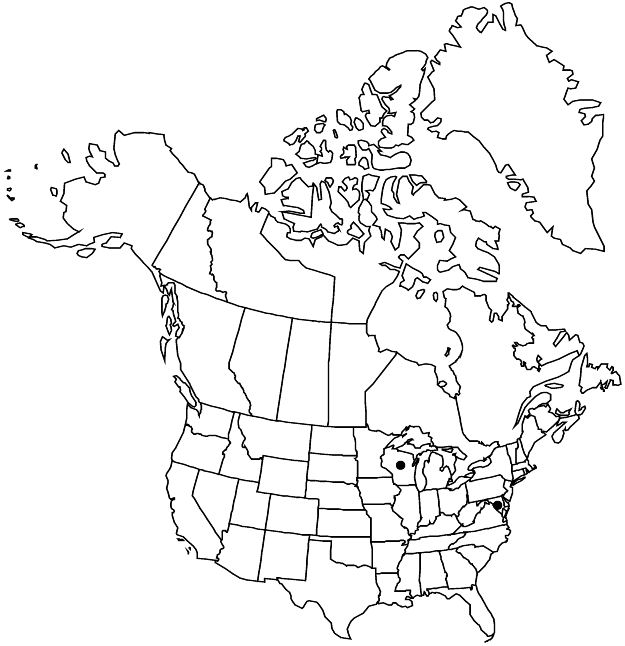Difference between revisions of "Alcea rugosa"
Oesterr. Bot. Z. 12: 254. 1862.
FNA>Volume Importer |
imported>Volume Importer |
||
| (One intermediate revision by the same user not shown) | |||
| Line 40: | Line 40: | ||
|elevation=0–300 m | |elevation=0–300 m | ||
|distribution=Md.;Wis.;e Europe;w Asia;introduced widely. | |distribution=Md.;Wis.;e Europe;w Asia;introduced widely. | ||
| + | |introduced=true | ||
|discussion=<p><i>Alcea rugosa</i> is a showy ornamental that is becoming more frequent in cultivation because it is more resistant to hollyhock rust (Puccinia malvacearum) than <i>A. rosea</i>. The species is native in temperate eastern Europe in Ukraine and the Russian Federation, and to western Asia in Armenia, Azerbaijan, and Georgia. It occasionally escapes and naturalizes in disturbed temperate areas worldwide.</p> | |discussion=<p><i>Alcea rugosa</i> is a showy ornamental that is becoming more frequent in cultivation because it is more resistant to hollyhock rust (Puccinia malvacearum) than <i>A. rosea</i>. The species is native in temperate eastern Europe in Ukraine and the Russian Federation, and to western Asia in Armenia, Azerbaijan, and Georgia. It occasionally escapes and naturalizes in disturbed temperate areas worldwide.</p> | ||
|tables= | |tables= | ||
| Line 64: | Line 65: | ||
|publication year=1862 | |publication year=1862 | ||
|special status=Introduced | |special status=Introduced | ||
| − | |source xml=https:// | + | |source xml=https://bitbucket.org/aafc-mbb/fna-data-curation/src/2e0870ddd59836b60bcf96646a41e87ea5a5943a/coarse_grained_fna_xml/V6/V6_408.xml |
|subfamily=Malvaceae subfam. Malvoideae | |subfamily=Malvaceae subfam. Malvoideae | ||
|genus=Alcea | |genus=Alcea | ||
Latest revision as of 22:20, 5 November 2020
Plants 1.5–2.5 m, stellate-hairy. Leaves: stipules ovate, 6–11 mm, apically 2–4-lobed; petiole equaling or longer than blade; blade ovate to ovate-orbiculate, usually 5–7-lobed 1/2 or more to midrib, often figlike, 7–15 cm, margins crenate. Inflorescences simple, flowers solitary, subsessile; bracts leaflike. Pedicels 6 mm, to 8–10 mm in fruit; involucellar bractlets 6-parted, usually 1/2–2/3 calyx length. Flowers: calyx hairy; corolla not doubled, 8–10 cm diam., petals pale yellow, usually drying greenish, notched, narrowed to base, 5 cm; staminal column bearing anthers at apex; anthers 5-rowed when viewed from above; style 20–40-branched. Schizocarps enclosed by calyx, 2 cm diam.; mericarps (20–)30(–40), channeled and winged dorsally, 4–6 mm. Seeds tuberculate or not, glabrous or minutely hairy axially. 2n = 42.
Phenology: Flowering May–Oct; fruiting Jun–Oct.
Habitat: Disturbed sites, roadsides, vacant lots
Elevation: 0–300 m
Distribution

Introduced; Md., Wis., e Europe, w Asia, introduced widely.
Discussion
Alcea rugosa is a showy ornamental that is becoming more frequent in cultivation because it is more resistant to hollyhock rust (Puccinia malvacearum) than A. rosea. The species is native in temperate eastern Europe in Ukraine and the Russian Federation, and to western Asia in Armenia, Azerbaijan, and Georgia. It occasionally escapes and naturalizes in disturbed temperate areas worldwide.
Selected References
None.